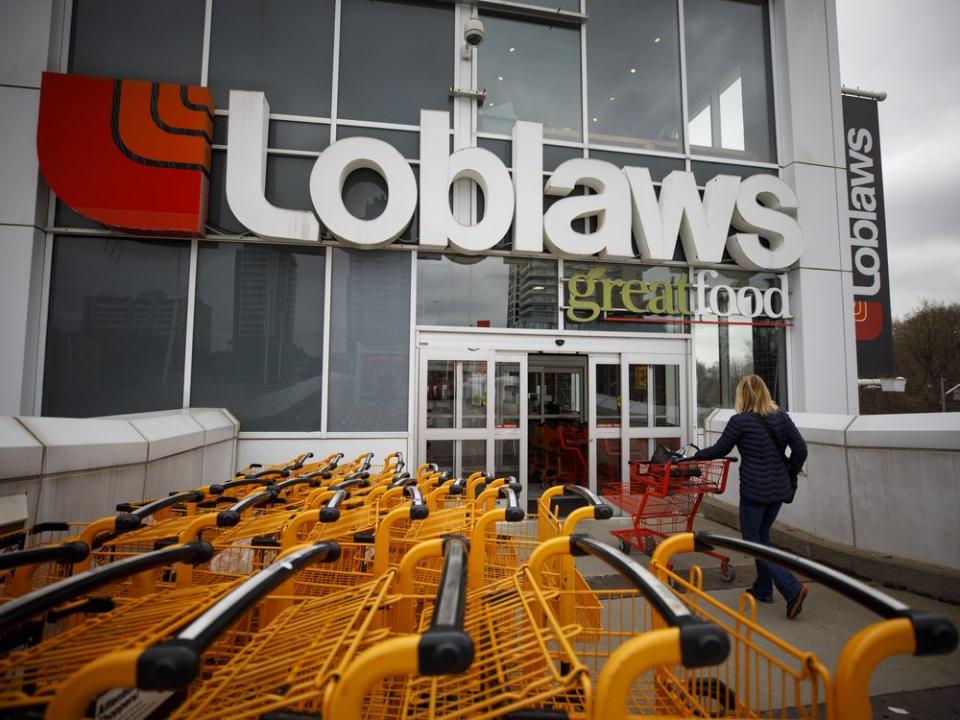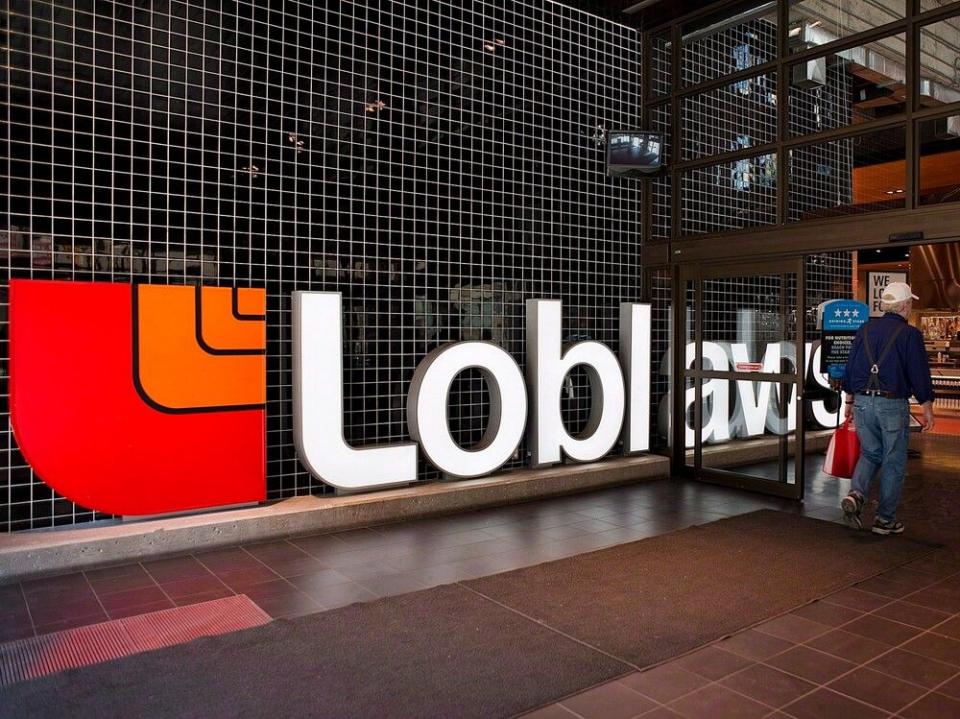Loblaw faces accusations it dressed up routine practice as No Name price freeze

Some Canadian food executives and a rival grocer say Loblaw Companies Ltd.’s “price freeze” may be nothing more than an empty gesture, since the timing of the move lines up almost exactly with a standard, annual freeze on cost increases across the industry.
Loblaw, which oversees the largest food and drug chain in Canada, announced on Oct. 17 that it was freezing prices across its in-house No Name brand until the end of January. Loblaw president Galen Weston told shoppers in a statement that the decision was meant to give them a break from the worst food inflation in 40 years.
“On average, No Name prices are already 25 per cent cheaper than comparable name brands,” Weston said. “Coupled with this price lock, that could make a real difference in both your grocery bills and your peace of mind. You’ll know that if other food prices go up, No Name prices won’t… guaranteed.”
One of Loblaw’s main rivals quickly sought to deflate the magnanimity of Weston’s gesture. Montreal-based Metro Inc., which runs the third-largest grocery chain in Canada, issued a series of statements to media outlets stressing that freezing prices during the holidays isn’t a new tactic.

In an email, Metro spokesperson Marie-Claude Bacon said a holiday blackout “is a long-standing practice” at the company. “Metro does not accept cost price increases from its suppliers at this time of the year, which is the busiest time of the year with the holidays, in order to avoid any retail price changes, with rare exceptions,” she said.
Three sources in the Canadian food manufacturing sector, who spoke on condition of anonymity, backed Metro, saying it’s disingenuous to make a big deal about a price freeze for the next three months, because that is the one period of the year when big grocers typically face little pressure from suppliers to raise prices. Each year, many grocers institute a so-called “blackout” from November until January or February. In that time, grocers refuse to negotiate price increases with suppliers, mostly as a way to make operations simpler during the all-important holiday sales blitz.
Loblaw insisted its No Name price freeze is different than the industry’s traditional holiday blackout, which is about holding costs steady at the wholesale level. That practice doesn’t stop grocers from changing prices at the retail level, Loblaw spokesperson Catherine Thomas said, adding that holiday blackouts don’t often extend to all products and categories in the store, while the No Name price freeze applies to the entire line of more than 1,500 products.
“This is not standard, nor is it something we’ve ever done before,” Thomas said in an email. “What we are doing is not the norm, it’s unprecedented.”
What we are doing is not the norm, it’s unprecedented
Catherine Thomas, Loblaw spokesperson
Regardless, the insinuation that Weston’s announcement was little more than a publicity stunt could create yet more problems for the grocery industry, which already finds itself in the middle of a swirl of public relations headaches. This year, the top three supermarket chains — Loblaw, Sobeys’ parent Empire Co. Ltd. and Metro — were still shaking off the Hero Pay scandal of June 2020 when economists and consumer advocates started questioning whether grocers have been taking advantage of inflation to boost profits.
‘Pressure is working’
Earlier this month, the House of Commons agriculture committee voted to launch a parliamentary inquiry into the questions of profiteering. And this week, New Democratic Party leader Jagmeet Singh has been pointing to the Loblaw price freeze as proof that the growing political scrutiny is making the big grocers squirm. “The pressure is working,” he wrote on Twitter on Oct. 17.
For months, grocery executives, including Weston, have been predicting that inflation relief is coming. But the latest Statistics Canada report, released on Oct. 19, shows grocery bills are still surging at the worst rate so far in the yearlong inflation crisis.
Food retail prices jumped 11.4 per cent year over year in September, well above the overall inflation rate of 6.9 per cent and the worst food inflation rate since 1981, according to the latest consumer price index report.
In his letter to customers this week, Weston said most of the inflation is “maddeningly” out of his control. The one thing he could control, he said, is the prices across 1,500 No Name products, one of his two popular store brands available across the Loblaw network. (The other is President’s Choice, which is not subject to a price freeze.)
“Your grocery bill is higher today because the suppliers who make the products we sell are raising their prices for us. And, while we’ve challenged (and will continue to challenge) any unfair price increases, the truth is most are reasonable,” Weston said. “That’s why, to help Canadians hit the brakes on food inflation, we are focusing on what is in our control.”

Private label products, such as No Name, are usually made by third-party suppliers contracted to make products exclusively for the grocery chain.
Typically in the food business, a supplier looking to recoup higher costs for ingredients or labour has to negotiate with a grocer to get them to pay more for their products. But that doesn’t automatically impact the price on shelves. Retail prices are set by the grocer, who can decide whether to pass the increase onto the consumer or absorb them by taking less margin.
‘Pretty big statement’
A former vice-president at Loblaw, who spoke on condition of anonymity, said stores can still raise or lower retail prices when they’re in the middle of a holiday blackout. In fact, price changes can be useful during those periods, since they typically coincide with the fourth quarter when grocers are striving to hit year-end targets.
“If you’re trying to manage a margin number at the end of a quarter, you’re likely to be raising retail (prices),” the executive said. “The fact that they’ve taken this off the table as one of their levers is a pretty big statement.”
The whole point of a holiday blackout is to give executives more certainty around what their margin and cost levels look like as they enter the holiday sales blitz, the executive said. Sales volumes peak around Christmas, and losing even a small amount of market share at that time can have a major impact on performance. So blackouts free up a grocery chain’s corporate staff to work with suppliers on operational matters, like making sure deliveries arrive on time, rather than negotiating wholesale prices, the executive said.

But if that’s the case, it means Loblaw is rolling out a price freeze during the one period of the year that the grocery industry, traditionally, doesn’t contend with increases in the cost of goods.
Thomas, at Loblaw, denied that suggestion.
“It’s common for some suppliers to hold costs through the busy holiday season, but we are still dealing with cost fluctuation on many No Name products as we speak,” she said on Oct. 18. “Bottom line: it is not common for a grocer to commit to holding prices at any time of year — particularly on 1,500 items and the nation’s second-largest brand.”
‘Absolutely no co-ordination’
Karl Littler, senior vice president at Retail Council of Canada, a lobby group that represents grocers, said the wholesale cost of goods isn’t the only factor influencing retail prices, since grocers also have to contend with rising costs for labour, fuel and transport.
Littler also strongly denied claims that blackouts in the grocery industry could amount to collusion among the grocery chains. “There’s absolutely no co-ordination on price,” he said.
Loblaw freezes No Name prices to combat inflation in first for Canadian grocer
House committee to probe big grocers’ profits, prolonging industry’s PR struggle
Food inflation may have peaked, says head of Canadian grocery giant
The claims stemmed from a statement Metro gave to CBC News, which said that “it is an industry practice to have a price freeze from Nov. 1 to Feb. 5 for all private label and national brand grocery products.”
Sylvain Charlebois, director of Dalhousie University’s Agri-Food Analytics Lab, said any sort of industry-wide price freeze would run afoul of federal competition law. “Wholesale, absolutely, that’s their business. What’s illegal is when you start playing with market conditions affecting consumers,” he said. “They can do whatever they want,” he said. “But if you start screwing around with retail prices and co-ordinating strategies with other competitors, that’s illegal. Retail, not wholesale.”
Bacon, at Metro, clarified that she wasn’t referring to retail prices.
“It’s a blackout on cost increases at the wholesale level,” Bacon said in an email. “I never said that it was a co-ordinated effort between grocers to hold prices steady for an extended period of time because there is no co-ordinated effort. … There is no collusion. This has never been discussed with our competitors.”
• Email: jedmiston@postmedia.com | Twitter: jakeedmiston

 Yahoo Finance
Yahoo Finance 